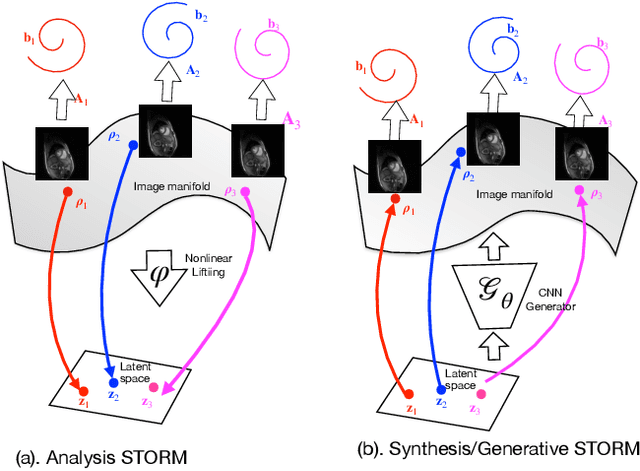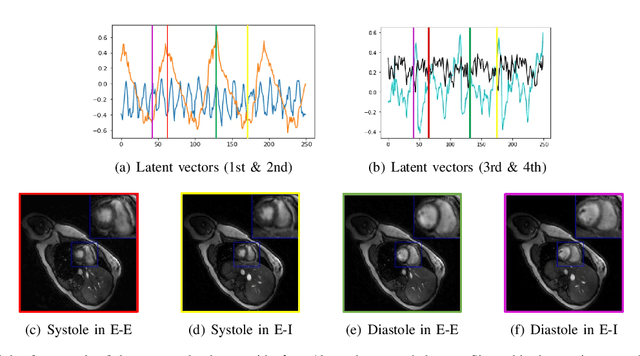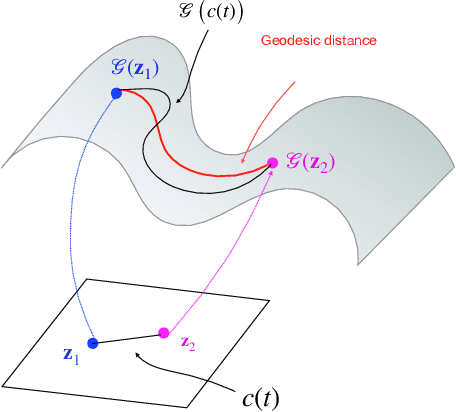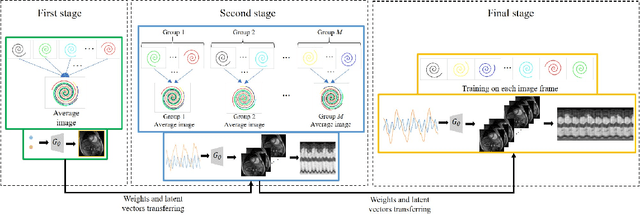Dynamic imaging using a deep generative SToRM model
Paper and Code
Feb 11, 2021



We introduce a generative smoothness regularization on manifolds (SToRM) model for the recovery of dynamic image data from highly undersampled measurements. The model assumes that the images in the dataset are non-linear mappings of low-dimensional latent vectors. We use the deep convolutional neural network (CNN) to represent the non-linear transformation. The parameters of the generator as well as the low-dimensional latent vectors are jointly estimated only from the undersampled measurements. This approach is different from traditional CNN approaches that require extensive fully sampled training data. We penalize the norm of the gradients of the non-linear mapping to constrain the manifold to be smooth, while temporal gradients of the latent vectors are penalized to obtain a smoothly varying time-series. The proposed scheme brings in the spatial regularization provided by the convolutional network. The main benefit of the proposed scheme is the improvement in image quality and the orders-of-magnitude reduction in memory demand compared to traditional manifold models. To minimize the computational complexity of the algorithm, we introduce an efficient progressive training-in-time approach and an approximate cost function. These approaches speed up the image reconstructions and offers better reconstruction performance.
 Add to Chrome
Add to Chrome Add to Firefox
Add to Firefox Add to Edge
Add to Edge